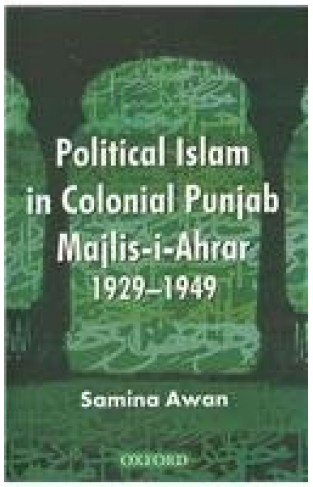TThe investigation of an ideologized and activist organization like the Majlis-i-Ahrar-i-Islam (MAI) proves a journey through several inter-related domains including political Islam, South Asian Muslim identity politics and the transformation of Punjab from a bastion of the Raj to a sword arm
for Pakistan movement. Here, region, culture, class, creed, oratory and populist politics combined to unleash a form of agitational pattern which not only politicized Muslims in Punjab and in the adjoining regions, they equally made the urban-rural schisms even more explicit. Using print capital and
espousing trans-regional Islam and composite Indian nationalism, the Ahrar leaders brought a synthesis between the divergent forces of modernity and tradition, yet were overtaken by even larger movements, which offered more comprehensive and competitive programmes. Hemmed in between the Khilafat and
Partition, the MAI offers a unique area to research several important historical issues in the recent South Asian history.
Majlis-i-Ahrar-i-Islam: A Socio-Political Study reveals the centrality of politics of personalities and issues within a broad political and ideological context. It was a brainchild of the middle class, urban Muslim professionals, who espoused a complete independence for India and sought the
empowerment of underprivileged groups both in the princely states and British India. Its appeal banked on traditional modes such as oratory, mosque-based activism and voluntary support obtained in the name of Islam and higher moral values. It tried to make its mark on several fronts and that too
within the most crucial two decades preceding independence and, at times, filled up prisons with its volunteers courting mass arrest.



